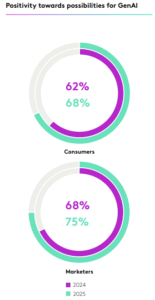Data validation
AI enhances validation by learning from historical data patterns to set dynamic validation rules. Instead of relying solely on static validation scripts, machine learning models can adapt to evolving data characteristics. Suppose an e-commerce platform notices a sudden spike in certain product returns; AI can validate whether these anomalies stem from genuine demand shifts or data entry errors, allowing for proactive intervention.
Data qualification
Data qualification determines whether a dataset is suitable for a specific purpose. AI can assess data quality dimensions — such as completeness, consistency and accuracy — using intelligent scoring systems. For instance, a marketing team might use AI to qualify potential leads by analyzing demographic, psychographic and behavioral data, focusing resources on those most likely to convert.
Preparing the right data for AI-based solutions
The effectiveness of AI models, particularly large language models (LLMs) and Specialized Language Models (SLMs), hinges on the quality, relevance and representativeness of the training data. Preparing data for AI is an iterative process requiring meticulous curation and management.






